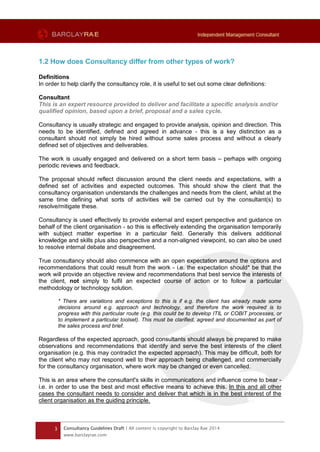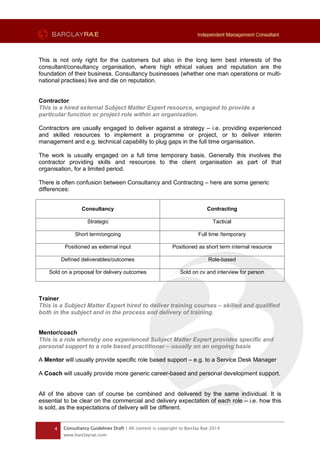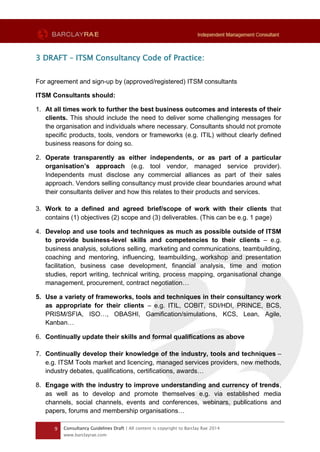The document outlines consultancy guidelines, emphasizing the role of consultants in providing expert knowledge and strategic advice to enhance organizational effectiveness. It distinguishes between consultancy and other work types, discussing key responsibilities, necessary skills, and the ethical framework guiding consultants' relationships with clients. The draft aims to foster discussions on consultancy registration and membership within the ITSM/PPM industries, with a focus on establishing best practices and a code of conduct for consultants.








